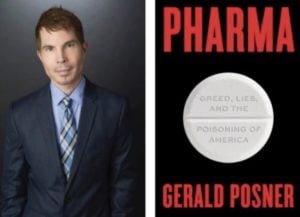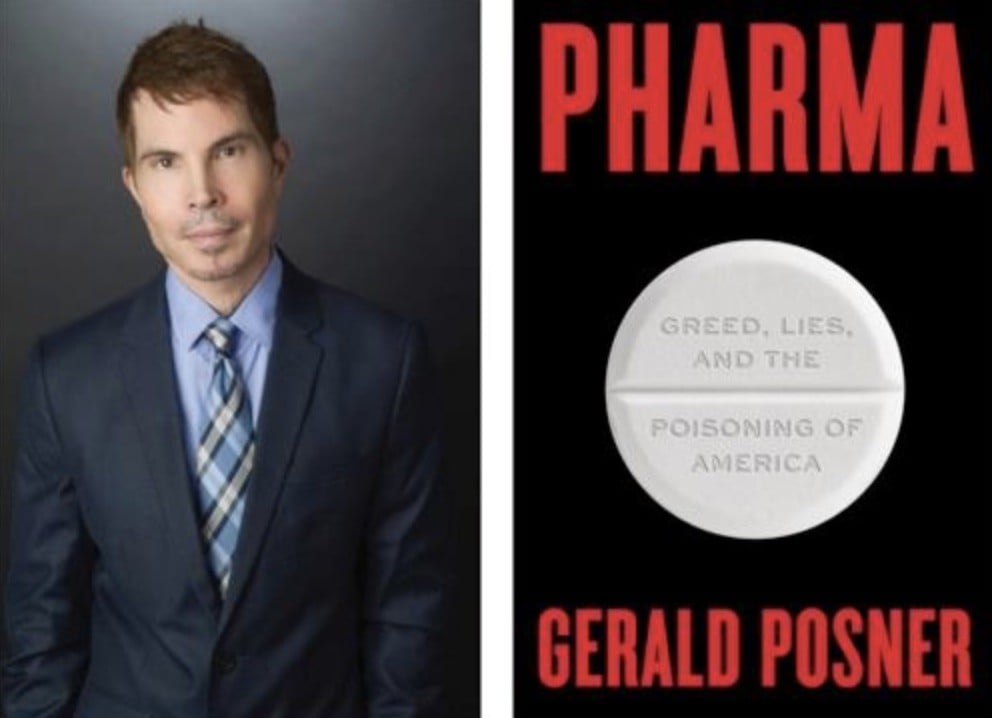I recently wrote an April Fool piece about an imaginary drug company that invested a billion dollars in a COVID vaccine, but when they ran it through Phase 3 clinical trials it fell just short of statistical significance for effectiveness. “Shucks! Back to the drawing board.” They report the results exactly as they occurred and abandon the vaccine. The joke, of course, is that no drug company behaves in this way. From our vantage out here in consumerland, all vaccine trials are successful. Can you call it “science” if there is only one acceptable outcome of the experiment? Banks that are “too big to fail” cost the public hundreds of billions of dollars. Drugs that are “too big to fail” can cost hundreds of thousands of lives.
How did we get to this place, where medical companies vie with tobacco companies for the least trusted industry in America? where, nevertheless, the companies that have a ginormous conflict of interest end up with the responsibility for safety-testing their own products? Where America’s radio and TV stations are so dependent on direct-to-consumer drug ads for their largest single source of revenue that they shy away from reporting news that might have a negative impact on the bottom lines of Big Pharma?
Limited Hangout (definition) An exposé of a corrupt official or company that is actually sponsored by the target of the exposé. Hyperbolic language is used to condemn the target, but in fact, the worst abuses are omitted, leaving the impression that the official or company is less corrupt than, in fact, he is.
Gerald Posner was known to me as a muckraking journalist who pulled punches. His twin assassination narratives concealed the roles played by US Intelligence services in arranging the murders of John F. Kennedy and Martin Luther King.
His latest book, Pharma paints a devastating portrait of America’s most profitable industry. If Pharma is a limited hangout, then God help us!

Have you heard of the Sackler family? Forbes lists them as #30 among America’s wealthiest, but their style is to keep a low profile. In the middle years of the last century, Arthur Sackler built his empire in pharmaceuticals, medical research, advertising, and philanthropy (!) while creating a new model for a vertically integrated industry.
Sackler’s genius was to create dozens of “independent” companies and non-profits, all of which listed their headquarters as 17 E 62nd St in Manhattan. His echo chamber gave the impression of independent messages about his drug offerings that came from many directions, when in fact, there were many voices singing from the same hymnsheet. He reached for control of every aspect of the pharmaceutical business,
- “Charitable” support for research at the world’s best medical schools
- Ownership of journals that published their results
- Ad agencies that did marketing campaigns for new drugs and slur campaigns against anyone who questioned their safety
- Drug companies placed expensive ads in the “independent” journals, until the journals grew dependent on ad revenue.
- Opening the revolting door for FDA regulators, so that this year’s “regulators” on a fixed government salary became next year’s corporate executives with perks and stock options.
- Astroturf patient advocacy groups that demanded access to drugs and insurance coverage to pay for them
- The largest lobbying force of any industry, in DC and as well as state capitals
- “Educational seminars” for doctors including expense-paid junkets at luxury golf and beach resorts
- A computerized prescription-tracking system from the days before the Worldwide Web that supported…
- An army of commission-based salesmen, paid in proportion to the number of prescriptions written by their client doctors.
- PBMs purchased and controlled by drug companies. A PBM or “pharmacy benefits manager” negotiates drug discounts on behalf of insurance companies—unless they are in the pocket of the same drug companies.
Arthur Sackler was an American success story. He grew up in the same Brooklyn neighborhood as my father, raised by a Jewish immigrant couple from Eastern Europe who ran a grocery store before the Great War. He worked his way through medical school writing copy for a medical advertising agency, in the good old days when medical advertising was directed only at doctors and was grounded in facts and data. He completed a residency in psychiatry and advanced in the research world before his ambitions broadened to encompass research, advertising, drug development, and medical publishing.
Sackler pioneered the “patent extension” strategy for making tiny modifications to a drug’s appearance or packaging the year before a patent was due to expire. When lethal side-effects were discovered in the course of clinical trials, the companies would routinely make a coldhearted decision about how much the eventual discovery of their deception would cut into corporate profits. Billions of dollars in fines and lawsuits for wrongful death were just a cost of doing business
When Sackler started his career, drugs were associated with diseases, prescribed for people who were sick. Another of Sackler’s innovations was to realize that the market of well people was far larger than people with diseases. At a time when W.H. Auden was writing poetry about the Age of Anxiety as a cultural malady, Sackler realized the profit potential in medicalizing anxiety as a nervous disorder. The Rolling Stones “little yellow pill” was at one time taken by tens of millions of America’s housewives, before the stories of abuse, addiction, and overdoses leaked out.
The book culminates in an extensive account of Oxycontin. This was the one drug that was completely controlled by the Sackler family, developed and marketed by their private family firm, Purdue Pharma. Purdue is the source of the wealth that earned the Sacklers’ place on the Forbes list; and Oxycontin has been responsible for the greatest public health disaster in American history. At the same time the drug was aggressively marketed with “discount cards” that offered first prescriptions free, Oxycontin pills were fueling an epidemic of addiction and overdose deaths.
Armies of Purdue sales reps were paid according to the number of Oxycontin prescriptions their physician-clients prescribed. “That physicians are susceptible to pseudoscience was, of course, something that Mortimer and Raymond [Sackler, Arthur’s brothers] had learned decades earlier from Arthur and his major drug launches.”
Limited Hangout?
After this devastating account of callous cupidity and a 50-year rape of American public health, is there anything missing? What could be worse?
Vaccines.
- Vaccines are the single most profitable component of the pharmaceutical empire.
- Vaccines are the only drug exempted from placebo-controlled safety testing.
- Dozens of vaccines are mandated by law, administered to every child as a requirement for entering school
- And drug companies as well as doctors and hospitals have no liability when health problems, including irreversible neurological damage and chronic auto-immune diseases, are triggered by vaccines.
- Vaccines are the subject of the biggest taboo in journalism. Questioning the safety or efficacy of any vaccine product is the surest way to be blacklisted and censored. Armies of trolls commenting in social media help to enforce the ban on questioning the science of vaccines. If you ask any questions about vaccine safety, you must be “anti-science”.
Since the explosion in mandated vaccines, starting around 1990, America has suffered two epidemic explosion in childhood disease:
- Autism has increased in prevalence from 0.04% in 1980 to 1.70% as of 2018
- Auto-immune disorders have increased more modestly, but from a much larger base. 11% of Americans suffered auto-immune diseases in 1990, compared to 16% today.
Plausible biological mechanisms make the connection between vaccines and both these disorders. Are vaccines responsible for increases in autism and autoimmunity? These are legitimate questions, but we are in an environment where anyone who asks them is being attacked and discredited.
Do you, dear reader, know that this 2019 study is the only long-term analysis of general effects of vaccination on children’s health? The picture it paints is not pretty.
Pfizer has a long and sordid history of defrauding the FDA when applying for drug approvals. But who is casting a skeptical eye on their claim that the COVID mRNA vaccine is 95% effective, with only short-term side-effects? Here is an editorial by Peter Doshi, senior editor of the British Medical Journal. Pfizer’s application for FDA emergency approval is supported by just 170 COVID cases in all. They reported that only 8 were in the vaccine group and 162 in the placebo group. Sounds pretty good until you hear that there were an additional 3410 cases that were “suspected” COVID, but were not investigated further and not included in the study. These data were not disclosed to FDA. These “suspected” cases were split almost equally between vaccine group and placebo group. Do we really trust that Pfizer would resist the temptation to cherry-pick which cases were “suspected” and which were investigated?

How can these problems be addressed? The answers are simple, but the politics is hard — maybe impossible.
First, the people who test drugs and conduct clinical trials must be paid well for doing an honest job, with no financial ties that could make them lean one way or the other.
Second, vaccines must be treated like any other medical product, with the same tests for safety and efficacy, and the same corporate liability if they cause harm.
I think at this point we hope and pray that Robert Kennedy Jr. will be able to do something after the election. Maybe he can, along with all of the wonderful doctors that he knows – that were silenced, lost their licenses, etc. when COVID came to town.
The Control group study is now out too.
Devastating picture of the true costs of the vaxx industry.
https://thecontrolgroup.org
I was in Big Pharma for ~20 years as a sales rep. Much of what is stated above is true. One error (in my opinion…) is that Vaxx’s are ‘most profitable’. I believe chronic, ‘mail-box money’ reoccurring prescription diseases are MORE, or most profitable. The two years I sold the seasonal Flu Vax, the vaccinations were useless because the virus had mutated. The incentivization for doctors was absolutely unethical. I totally agree with Sackler family summary. It was, and in many was still is, a buy-back, favoritism business.